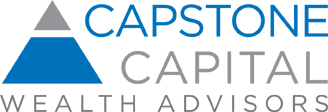Have you noticed that whenever we receive money, it somehow always seems to magically flow through our fingers like sand flowing through an hourglass? It is very difficult to hang onto. Perhaps this is why in the financial services industry we call it “cash flow.”
Most people put much less thought into where their money is going than into what they will do this weekend or where they will go on their next vacation. Then they wonder why they never seem to be able to get ahead financially. Before the money arrives, we must set up financial dikes and ditches—strict financial priorities, rules, and boundaries for ourselves—so our money will be used for the things that are most important to us. Yes, work is required, but the reward is well worth the effort.
Once we decide where we want our money to go, we need to make the flow as automatic as possible to be sure it consistently goes to the right places. I am a huge fan of direct deposits and automatic withdrawals, not only because they are less work, but also because they make the discipline of regular saving and investing much easier. It is psychologically much less painful than having to decide every month to write a check to a savings or investment account.
Properly channeling our cash flow is easier said than done. As mentioned in other articles, successful money management is not so much about math as it is about personal discipline, sacrifice, and having a clear vision of what we want to accomplish. It has much more to do with emotions and behavior than with numbers.
First Things First
The best way to ensure that the most important things are taken care of is to pay for those things first. We should pay our existing commitments fully and on time before we buy other things we want. We should be honest in all financial dealings with others, whether they are individuals or large institutions. The failure of many people to live by this principle is largely what caused the real estate market and stock market collapse in 2008-2009, which resulted in the biggest recession since the Great Depression.
How many times have you told yourself that at the end of the month you will throw whatever is left over into a savings account? Is any money ever left over? If you are like most people, this approach never results in much surplus because somehow we never quite have enough money to buy all the things we want.
Many years ago I met a man who was consistently making about $800,000 per year. All he had to show for it when I first met him was $200,000 in savings, a huge house, a few fancy cars, a bunch of toys, and millions of dollars worth of debt. He was frustrated because he felt like no matter how much money he made, he never had quite enough to buy everything he wanted. He complained that some of his buddies were making well over $1,000,000 a year, and was convinced that if he could just get his income up to that level, then he would be happy. He was generally a miserable, cynical person who hated his job and kept saying he couldn’t wait to retire, yet wasn’t doing much to prepare for it.
I realized in that moment that it really is not possible for anyone to ever make enough money to buy everything they could possibly want. That is why it doesn’t work to save whatever is left over at the end of the month. If we really want to build savings or investments, we must make it one of our top priorities by doing so at the beginning of every month. Everything else will work itself out.
The IRS discovered this principle a long time ago. They require that our estimated taxes be withheld from every paycheck before we can spend it, or at least sent in on a quarterly basis for those who are self-employed. They know they would be much less likely to receive the full amount to which they are entitled if they depended on us to send them one big check on April 15 each year.
Have you noticed that it also happens to be less painful to pay our taxes this way? We tend not to feel the full cost of the taxes we pay when it comes out of our paycheck automatically before we even receive it. Have you ever had to pay extra when you filed your tax return because you were not having enough withheld? It hurts, doesn’t it? How much worse would it hurt if we had to come up with the full amount every year on April 15? Why not use this principle to our own advantage by systematically saving a percentage of every paycheck before spending any of it?
Adam Dawson, CFP® is a Principal at Capstone Capital and the author of Timeless Principles of Financial Security.
- Should You Invest At the Peak of the Stock Market? - August 5, 2021
- Our Thoughts on Bitcoin: Capstone Capital Wealth Advisors - May 12, 2021
- Are You Over-Insured? - September 12, 2017





